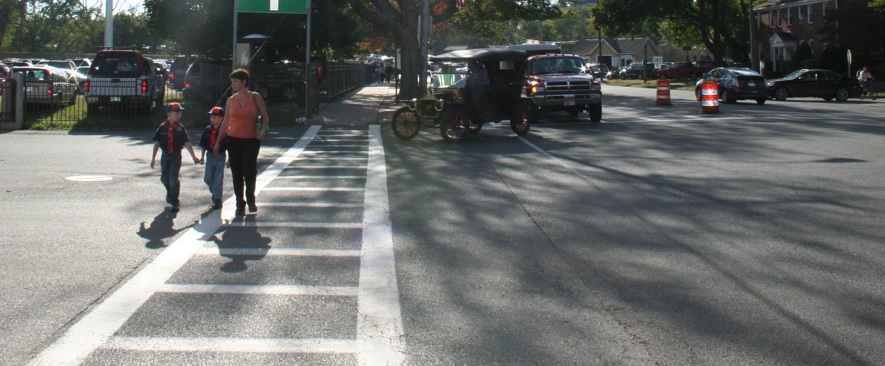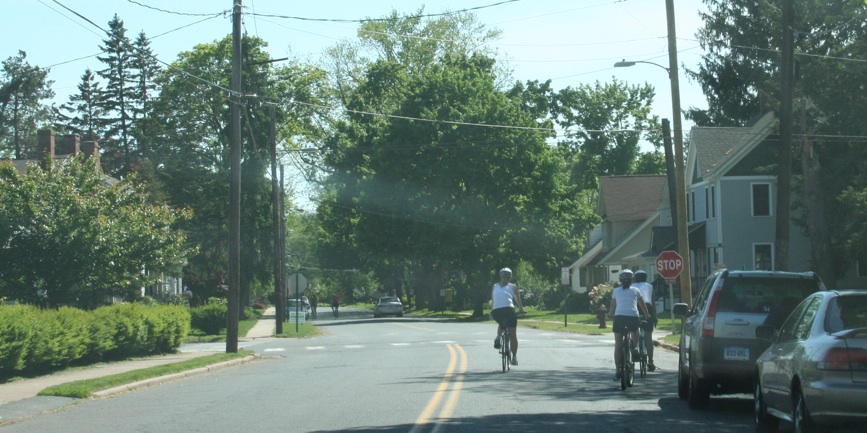 People like choices for how they move around in their hometown or when visiting another community – whether walking their dog, exercising, commuting to work or play, or at a special event with their family – and well-designed transportation choices are important to life.
People like choices for how they move around in their hometown or when visiting another community – whether walking their dog, exercising, commuting to work or play, or at a special event with their family – and well-designed transportation choices are important to life.
An all-day “Complete Streets Workshop: Designing Great Places” workshop is set for Thursday, June 21, at the Connecticut Department of Transportation, 2800 Berlin Turnpike, Newington.
The National Complete Streets Coalition identified 10 elements of a comprehensive vision for this intermodal policy that include a “vision for how and why the community wants to complete its streets” and specifies “that ‘all users’ includes pedestrians, bicyclists and transit passengers of all ages and abilities, as well as trucks, buses and automobiles.”
Connecticut adopted the “Complete Streets” legislation in 2009 as a placed-based economic and community development strategy.
“State of the State” presentation by Will Britnell, Roadway Design Unit, CONNDOT; and Ted DeSantos, Transportation and Structures, Fuss & O’Neill. Hear about case studies from Connecticut and New England and how the program can fit into long-term transportation, community building and economic development.
According to a recent national study, people on the site who live in walkable communities are more likely to be socially engaged and trusting than residents of less walkable neighborhoods. Additionally, they reported being in better health. By 2015, more than 15.5 million Americans 65 and older will live in communities where public transportation service is poor or non-existent. That number is expected to continue to grow rapidly as the baby boom generation “ages in place†in suburbs and exurbs with few mobility options for those who do not drive, according to an analysis by the Center for Neighborhood Technology, which evaluated metro areas in five size categories.
Presentations include “The Community Interface” about the I-84 Viaduct study in Hartford, an alternative approach to traditional transportation planning and the creative response of planners by Tom Maziarz, CONNDOT, and Toni Gold of Urban Edge Associates. Also, Fire Chief John Cochran of Arkansas will discuss integrating the program with fire and safety concerns. Wade Walker, director of planning, Fuss & O’Neill, on developing a transportation strategy that provides livability and balance, multi-modal opportunities – transit, pedestrian, bicycle and roadway networks. David Sousa, CDM Smith, infrastructure for neighborhoods can provide economic value to communities.
For registration call (860) 280-2337; e-mail info@ctmainstreet.org. Cost is $95.
